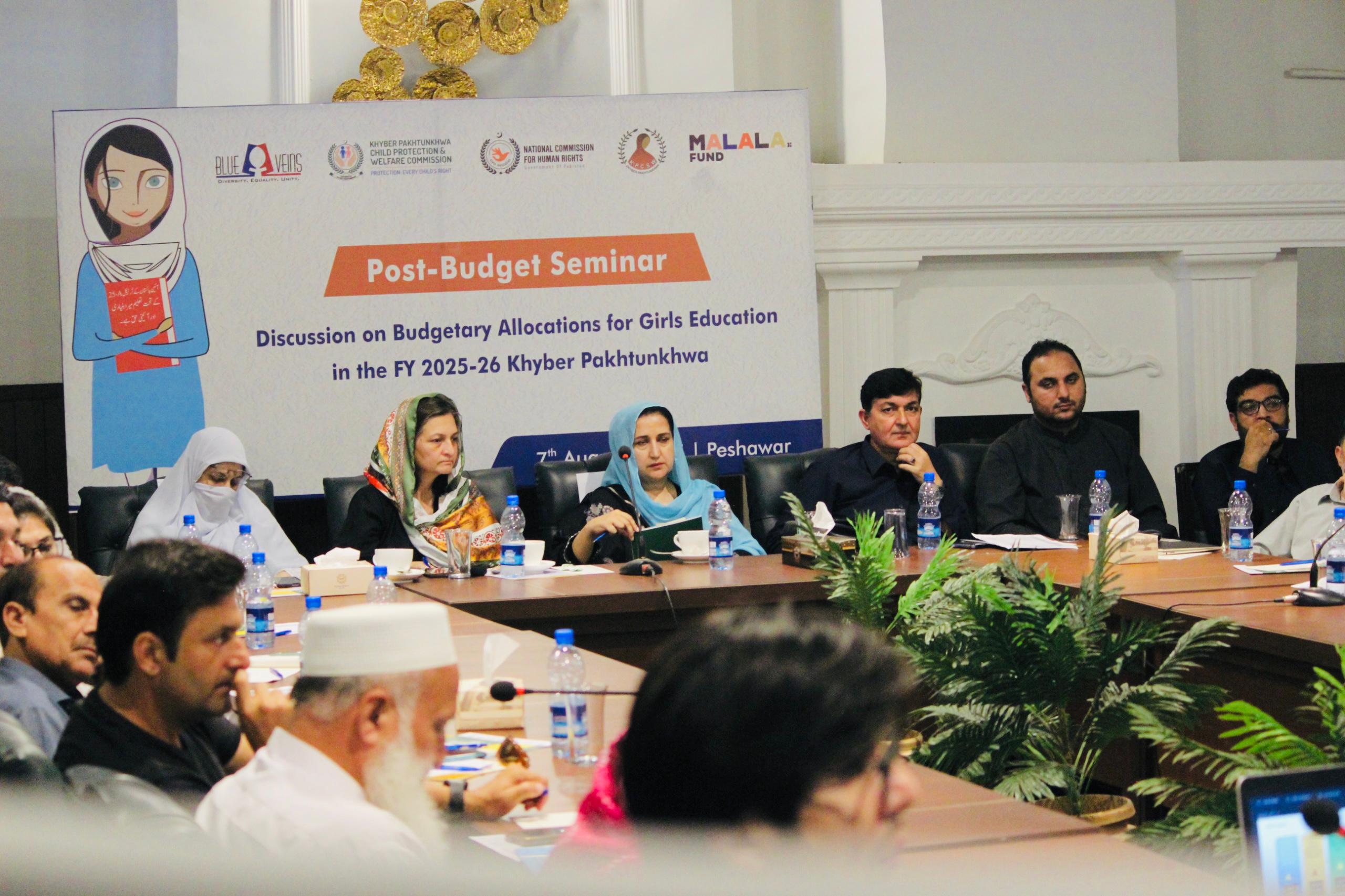Staff Report
PESHAWAR: A post-budget seminar focused on the allocation for girls’ education in the fiscal year 2025-2026 was jointly organized by Blue Veins in collaboration with the Khyber Pakhtunkhwa Commission on the Status of Women, the National Commission for Human Rights, the Child Welfare & Protection Commission, and the Government of Khyber Pakhtunkhwa. The event brought together a diverse group of stakeholders, including Members of the Provincial Assembly (MPAs), government departments, UN agencies, INGOs, civil society organizations, and other key players in the field of education and gender equality.
The seminar featured an insightful presentation from representatives of the Elementary & Secondary Education Department, who provided a detailed overview of the provincial education budget for fiscal year 2025-26. The total budget allocation for education stood at 363.4 billion PKR, with a development budget of 18.8 billion PKR, reflecting an 11% increase from the previous fiscal year. The presentation also highlighted the 97% utilization of the education budget in the fiscal year 2024-25, reflecting the government’s commitment to investing in education.
Key dignitaries who participated in the event included Dr. Nishat Riaz, Chief Executive of Malala Fund Pakistan, Mr. Taj Mohammad, Chairman of the Standing Committee on Education and Social Welfare, Mr. Shafi Jan, Chairman of the Standing Committee on Youth and Chairman DADAC, as well as other MPAs such as Amana Sardar, Shazia Tehmas Khan, and Sher Ali Afridi. These political leaders expressed their appreciation for the education department’s efforts and the increase in funding for girls’ education. Notably, the retention of the 70:30% allocation towards improving girls’ secondary education was highlighted as a key achievement.
Dr. Nishat Riaz spoke passionately about the importance of girls’ education, saying:
“Educating girls is not just a matter of fairness and rights—it is about the future and the economic growth of Pakistan. When we invest in girls’ education, we invest in the future of our country.”
Taj Mohammad, Chairman of the Standing Committee on Education and Social Welfare, emphasized the role of the parliament in ensuring effective allocation and monitoring of funds:”Parliamentary oversight is essential in ensuring that the allocated budgets are spent efficiently and effectively. We must hold ourselves accountable to ensure the welfare of our children, especially girls, is prioritized.”
Qamar Naseem, Program Manager at Blue Veins, underlined the importance of gender equity in education, stating:”Gender parity in education is not just a goal—it is an absolute necessity. It’s important that we ensure efficient spending that specifically addresses the needs of girls, so that no child is left behind, regardless of their gender.”
The seminar also allowed participants to provide recommendations and feedback, calling for more effective and efficient spending to ensure that the funds allocated to girls’ education have a lasting impact. The participants urged the government to focus on the equitable distribution of resources, ensuring that girls in all regions have access to quality education.
As the event concluded, there was a unified call for continued collaboration between government bodies, civil society, and international partners to ensure that the allocated funds are used effectively to advance the cause of girls’ education in Pakistan.

